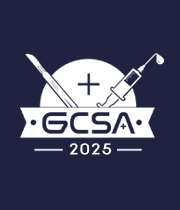Title : Understanding perceptions, knowledge and implementation barriers of enhanced recovery after surgery among surgeons and anaesthesiologists
Abstract:
Introduction: Enhanced Recovery After Surgery (ERAS) protocols have demonstrated benefits in improving postoperative outcomes, yet their implementation remains inconsistent, particularly in resource-limited settings. This study aimed to evaluate the knowledge, perceptions, and barriers to ERAS implementation among perioperative clinicians.
Methods: This cross-sectional study included responses from 214 perioperative clinicians, comprising surgeons and anaesthesiologists involved in abdominal surgeries, from tertiary care hospitals in Khyber-Pakhtunkhwa, Pakistan. A structured questionnaire collected data on participants’ knowledge of ERAS protocols, perceived barriers to implementation, and learning preferences. Responses were analysed using descriptive and inferential statistics, with significance set at p<0.05.
Results: Of the 214 respondents, 91.6% (n=196) were residents, and the majority were from surgery (90.2%, n=193) compared to anaesthesiology (9.8%, n=21). Knowledge regarding ERAS protocols was limited; 41.6% (n=89) reported no prior knowledge, while 45.3% (n=97) had minimal familiarity. Key barriers included lack of institutional support, time constraints, and insufficient local research. Despite limited knowledge, 67.8% (n=145) endorsed the inclusion of ERAS education in formal training programs. Preferred learning formats included seminars or lectures (42.9%, n=92) and journal articles (36.9%, n=79). Perceptions of ERAS importance were generally positive, but significant differences were noted regarding hospital administration support (p=0.013).
Conclusion: This study identifies significant gaps in ERAS knowledge among perioperative clinicians, particularly among residents, and highlights perceived logistical barriers to its implementation. However, the findings are limited by the underrepresentation of consultants and anaesthesiologists, who are key drivers of ERAS programs. The findings highlight the need for targeted educational interventions, stronger institutional support, and multidisciplinary collaboration to improve ERAS adoption.


